
San Polo: The Heartbeat of Venice
San Polo is one of the most vibrant and historic neighborhoods in Venice. This area is known for its bustling markets, rich history, and stunning architecture. Situated in the heart of Venice, San Polo offers a perfect blend of cultural heritage and modern-day charm, making it an unmissable destination for tourists. The neighborhood centers around the famous Rialto Market, where you can experience the local Venetian lifestyle firsthand. Fresh produce, seafood, and a variety of other goods are sold here, allowing visitors to indulge in authentic flavors and aromas. The nearby Rialto Bridge, one of Venice's most iconic landmarks, offers breathtaking views of the Grand Canal and is a popular spot for photography. San Polo is also home to several notable churches and historical sites. The Church of San Giacomo di Rialto, believed to be the oldest church in Venice, and the Basilica dei Frari, with its impressive artworks and tombs, are must-visit attractions. As you stroll through the narrow, winding streets, you'll discover hidden gems such as small artisan shops, cozy cafes, and traditional Venetian osterias. For art enthusiasts, San Polo has much to offer. The Scuola Grande di San Rocco houses an extraordinary collection of paintings by Tintoretto, providing a deep dive into Renaissance art. The neighborhood’s lively atmosphere is further enhanced by various festivals and events held throughout the year, offering visitors a taste of Venetian culture and traditions.
Local tips in San Polo
- Visit the Rialto Market early in the morning to experience it at its liveliest and get the freshest produce.
- Wear comfortable shoes as the streets are narrow and often uneven.
- Carry some cash, as many small shops and eateries may not accept credit cards.
- Take a guided tour of the Scuola Grande di San Rocco to fully appreciate the art and history.
- Try a traditional cicchetti (Venetian tapas) at a local osteria for an authentic culinary experience.
San Polo: The Heartbeat of Venice
San Polo is one of the most vibrant and historic neighborhoods in Venice. This area is known for its bustling markets, rich history, and stunning architecture. Situated in the heart of Venice, San Polo offers a perfect blend of cultural heritage and modern-day charm, making it an unmissable destination for tourists. The neighborhood centers around the famous Rialto Market, where you can experience the local Venetian lifestyle firsthand. Fresh produce, seafood, and a variety of other goods are sold here, allowing visitors to indulge in authentic flavors and aromas. The nearby Rialto Bridge, one of Venice's most iconic landmarks, offers breathtaking views of the Grand Canal and is a popular spot for photography. San Polo is also home to several notable churches and historical sites. The Church of San Giacomo di Rialto, believed to be the oldest church in Venice, and the Basilica dei Frari, with its impressive artworks and tombs, are must-visit attractions. As you stroll through the narrow, winding streets, you'll discover hidden gems such as small artisan shops, cozy cafes, and traditional Venetian osterias. For art enthusiasts, San Polo has much to offer. The Scuola Grande di San Rocco houses an extraordinary collection of paintings by Tintoretto, providing a deep dive into Renaissance art. The neighborhood’s lively atmosphere is further enhanced by various festivals and events held throughout the year, offering visitors a taste of Venetian culture and traditions.
Iconic landmarks you can’t miss
Campo San Tomà
Experience the enchanting atmosphere of Campo San Tomà, a historical landmark in Venice featuring stunning architecture and vibrant local culture.
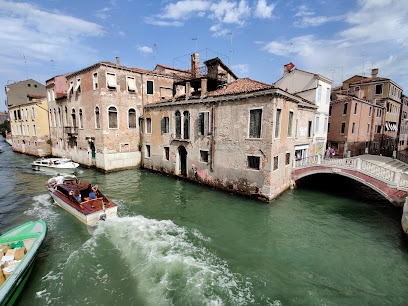
Campo San Stin
Explore the tranquility of Campo San Stin, a hidden gem in Venice, rich in history, architecture, and authentic local cuisine.
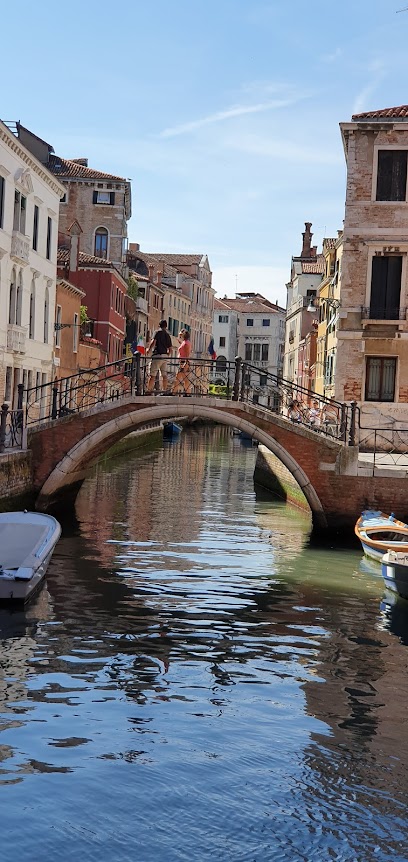
San Polo
Experience the charm of San Polo, a historic district in Venice, filled with local markets, stunning architecture, and vibrant Venetian culture.

Ponte San Polo
Discover the enchanting Ponte San Polo bridge in Venice, a serene spot for breathtaking views and an authentic taste of Venetian life.
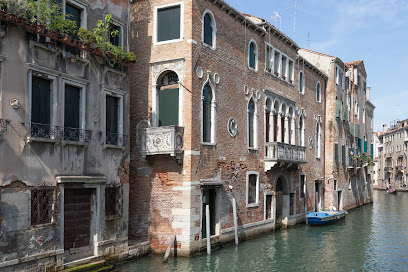
Monument to Paolo Sarpi
Discover the Monument to Paolo Sarpi in Venice, a striking tribute to the city's intellectual heritage and a peaceful retreat amidst vibrant surroundings.
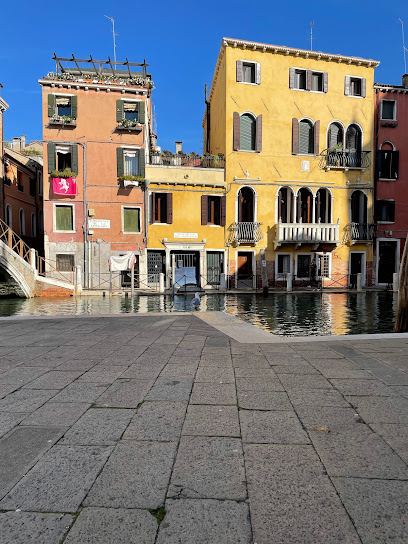
Campo San Polo
Discover the historical allure of Campo San Polo, Venice's largest square, where culture, cuisine, and captivating architecture converge.
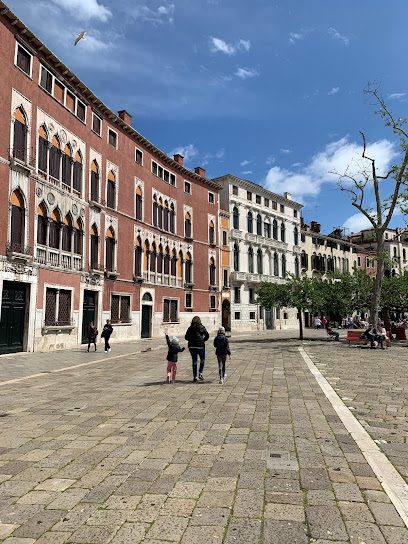
Sito della Casa di Marco Polo
Discover the intriguing legacy of Marco Polo at his historic home in Venice, where exploration and adventure come alive in the heart of the city.
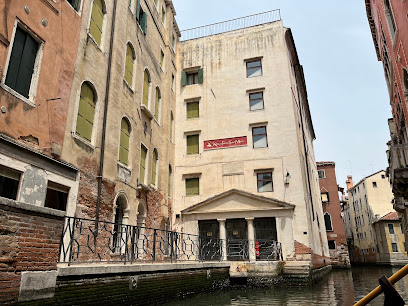
Campanile di San Polo
Discover the Campanile di San Polo, a stunning historical landmark in Venice, blending architectural beauty with rich cultural heritage.
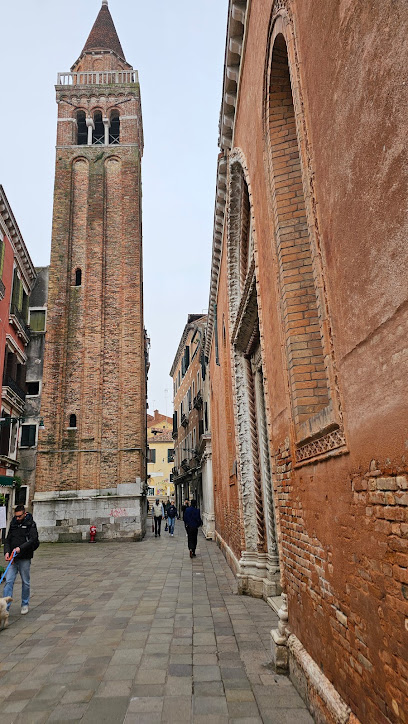
Calle del Perdon - Knights Templar Cross
Explore the captivating Knights Templar Cross at Calle del Perdon, a historical gem in Venice that unveils the city’s rich heritage and intriguing legends.
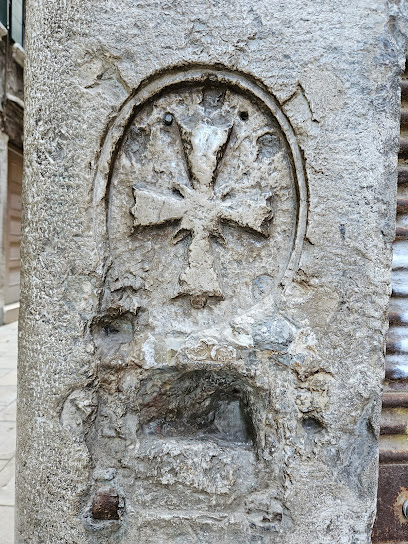
Dogana da Terra
Explore the historic Dogana da Terra in Venice, a stunning architectural marvel that reveals the city's rich maritime heritage and vibrant cultural history.
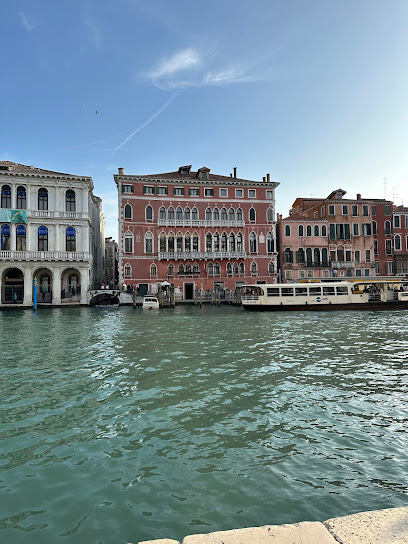
Unmissable attractions to see
Ponte di Rialto
Explore the Ponte di Rialto, Venice's oldest bridge, where history meets vibrant market life along the picturesque Grand Canal.
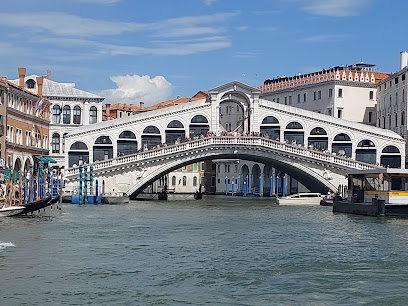
Bridge of Sighs
Discover the timeless beauty and historical significance of the Bridge of Sighs in Venice, a must-visit architectural marvel steeped in romance and history.
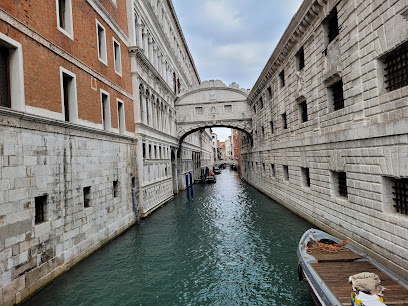
Saint Mark's Basilica
Explore the architectural wonder and historical richness of Saint Mark's Basilica in the heart of Venice, a must-visit for every traveler.
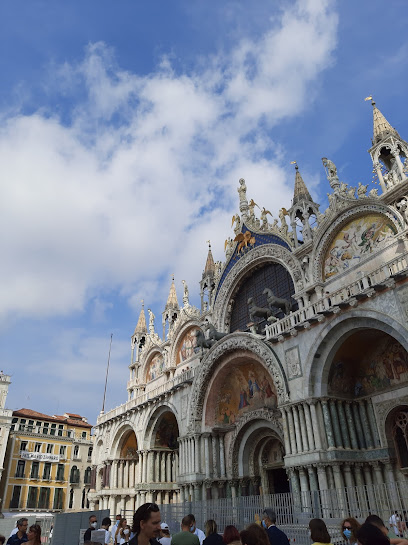
Basilica S.Maria Gloriosa dei Frari
Discover the breathtaking art and architecture of Basilica di Frari, a historic Venetian church rich in culture and spiritual significance.
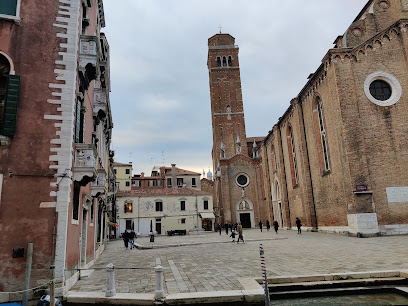
Clock Tower
Discover the Clock Tower in Venice, a stunning architectural marvel in Piazza San Marco, rich in history and breathtaking views.
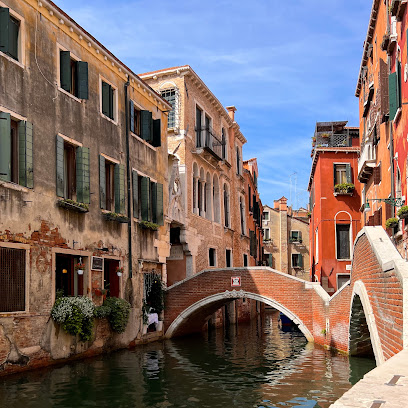
Campo San Stin
Discover the tranquil beauty of Campo San Stin, a hidden treasure in Venice, perfect for immersing in local culture and history.
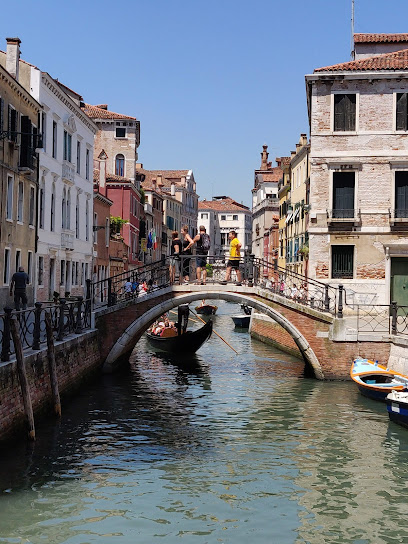
San Polo
Explore San Polo, Venice’s historic heart, where art, culture, and authentic cuisine come together in a picturesque setting.
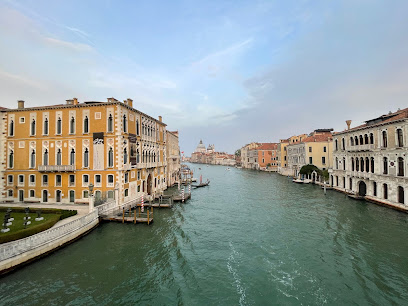
Monument to Paolo Sarpi
Explore the Monument to Paolo Sarpi in Venice, a stunning tribute to a key figure in the city’s cultural history surrounded by a vibrant atmosphere.
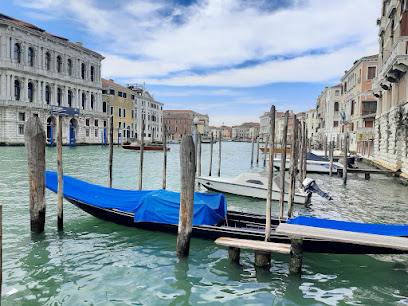
Campo San Polo
Explore the charm of Campo San Polo, Venice's largest historic square, where history and local culture come to life.
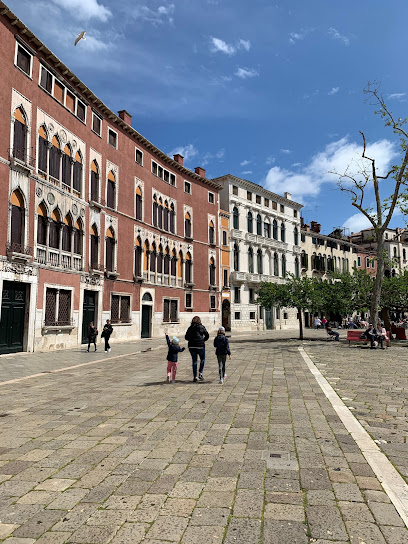
Gondoles
Sail through Venice's enchanting canals on a gondola ride, a quintessential experience that captures the city's timeless romance and beauty.
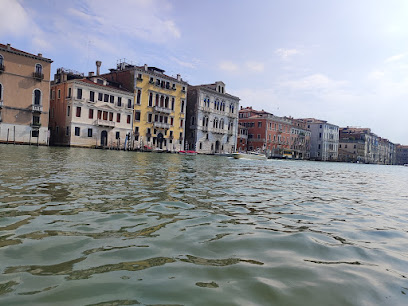
Palazzo Donà Brusa
Immerse yourself in the exquisite architecture and captivating art exhibitions at Palazzo Donà Brusa, a hidden gem in Venice.
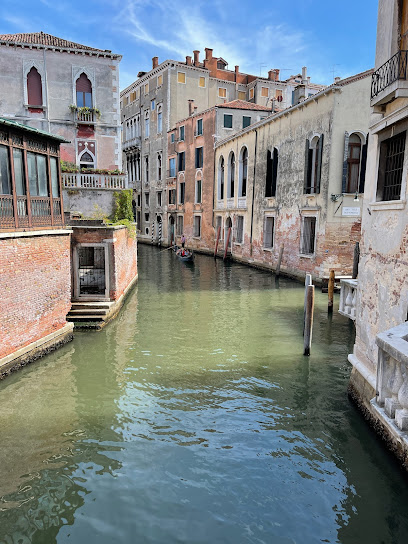
Essential places to dine
Ostaria dai Zemei
Experience authentic Venetian cuisine at Ostaria dai Zemei – where tradition meets flavor in a cozy setting.
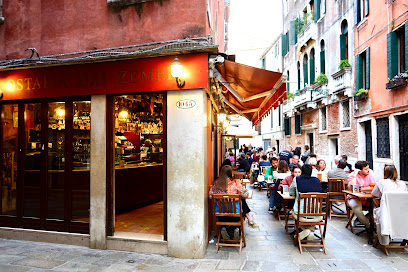
Birraria La Corte
Savor authentic Italian and Venetian cuisine at Birraria La Corte – a must-visit dining destination in Venice.
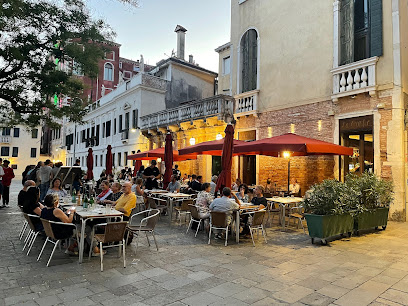
Ristorante San Silvestro
Discover authentic Italian cuisine at Ristorante San Silvestro in Venice - where tradition meets innovation in every delicious dish.
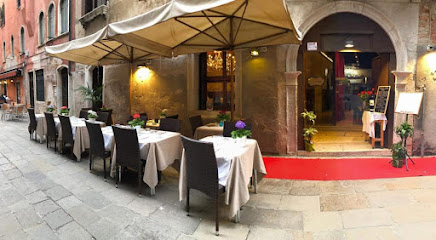
La Bottiglia
Discover La Bottiglia in Venice - where exquisite Italian cuisine meets an exceptional wine selection in a charming atmosphere.
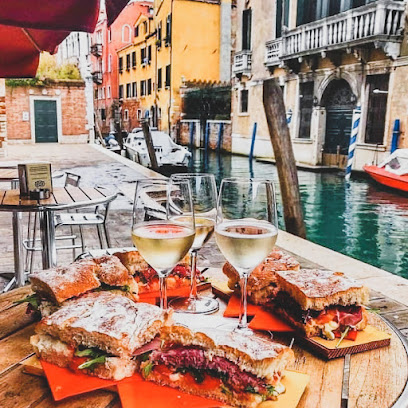
Poste Vecie
Discover authentic Venetian seafood at Poste Vecie, where tradition meets exquisite flavors in the heart of Venice.
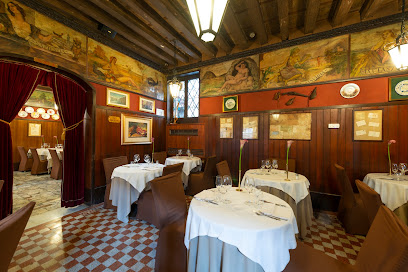
Al Gobbo di Rialto
Experience authentic Venetian cuisine at Al Gobbo di Rialto, where traditional Italian flavors meet fresh seafood delights.
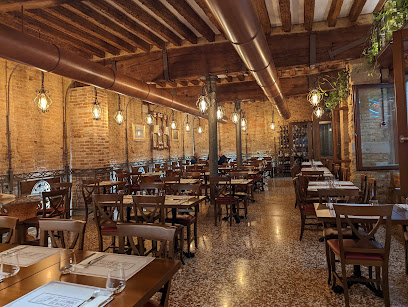
Hostaria Sant'Aponal
Experience authentic Venetian cuisine at Hostaria Sant'Aponal - where tradition meets flavor in the heart of Venice.
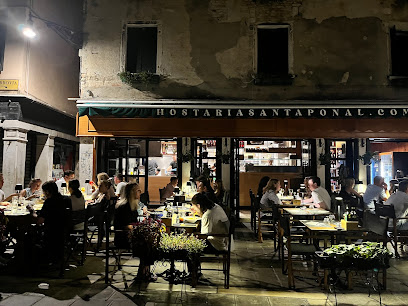
Sora Al Ponte
Discover authentic Venetian cuisine at Sora Al Ponte – where every dish tells a story.
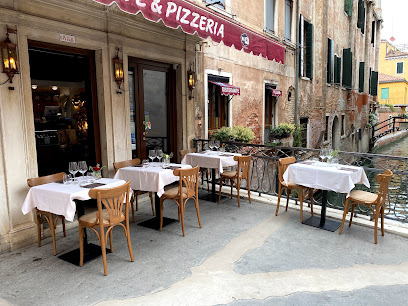
Osteria Al Sacro E Profano
Experience authentic Venetian cuisine at Osteria Al Sacro E Profano – where tradition meets flavor in every bite.
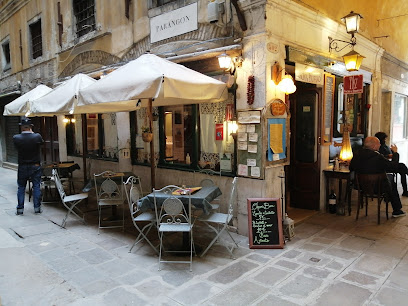
Trattoria a San Polo
Discover authentic Italian flavors at Trattoria a San Polo - where every dish tells a story of tradition and passion.
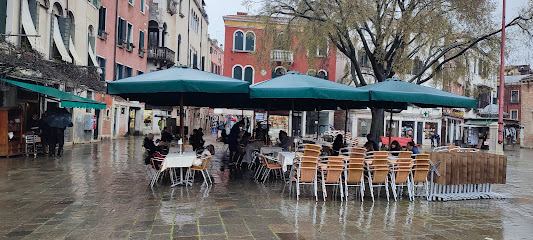
Markets, malls and hidden boutiques
T Fondaco dei Tedeschi by DFS
Discover T Fondaco dei Tedeschi by DFS, Venice's luxury shopping haven with breathtaking views and a blend of history and modernity.
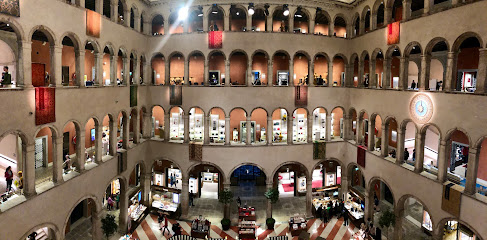
Malefatte Venezia
Discover the elegance of Venetian fashion at Malefatte Venezia, your go-to destination for exquisite handbags, cosmetics, and custom apparel.
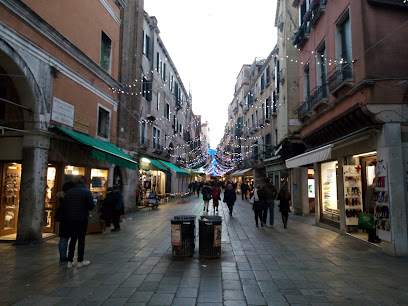
Leon D'Oro
Explore Leon D'Oro, Venice's premier destination for exquisite handcrafted masks and authentic Venetian souvenirs, near the iconic Rialto Bridge.
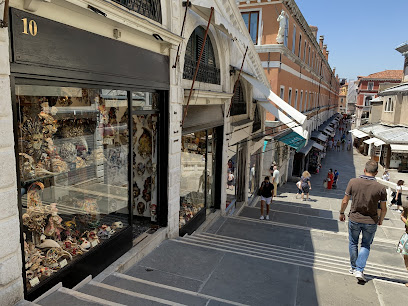
The Merchant Of Sand
Discover unique fashion accessories, handcrafted jewelry, and exquisite leather goods at The Merchant of Sand in the heart of Venice.
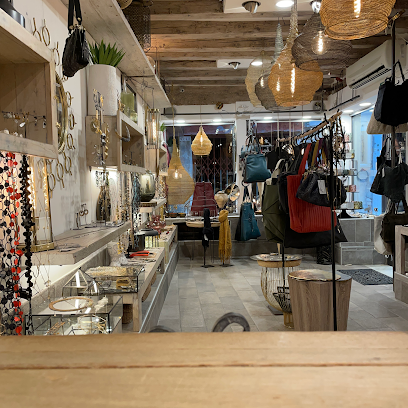
Penny Lane Shop Venezia
Immerse yourself in Venetian style at Penny Lane Shop Venezia, a charming dress store with unique designs that capture the essence of elegance.
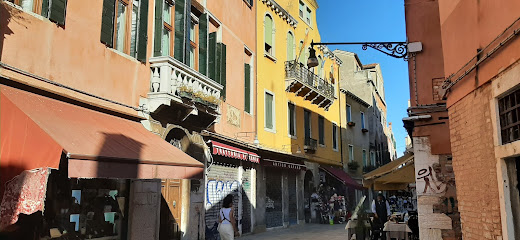
The M Venezia Rialto
Discover unique handmade treasures at The M Venezia Rialto, a charming craft store in the heart of Venice, showcasing local artisans’ creativity.
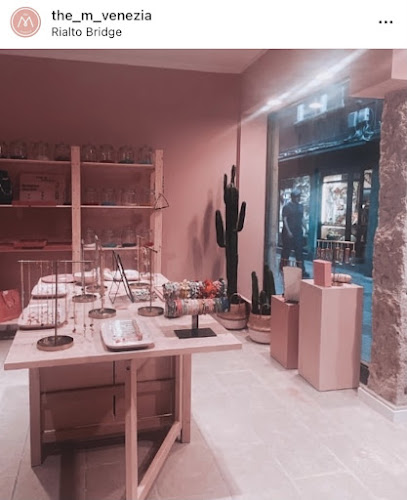
Euro Venice
Discover the magic of Venice at Euro Venice, your go-to destination for authentic Venetian souvenirs, from Murano glass to traditional masks.
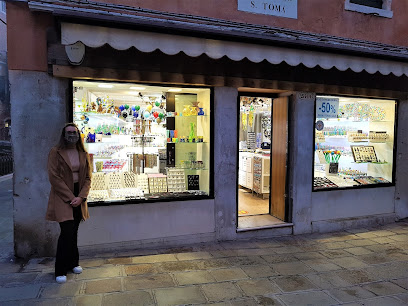
LA BOTTEGA DEI MASCARERI
Explore the enchanting world of handcrafted Venetian masks and unique gifts at La Bottega Dei Mascareri in Venice.
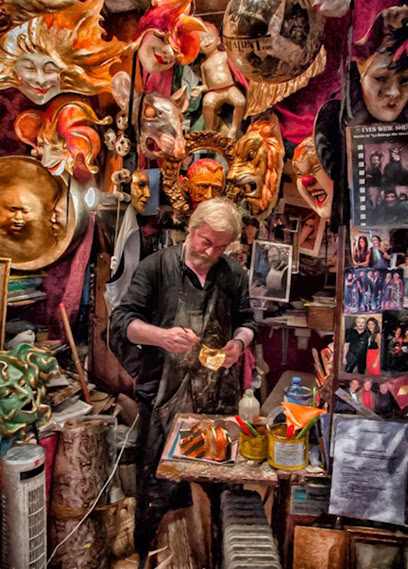
Biasin
Explore Biasin, a charming gift shop in Venice offering uniquely designed and beautifully crafted souvenirs that celebrate the city's rich heritage.
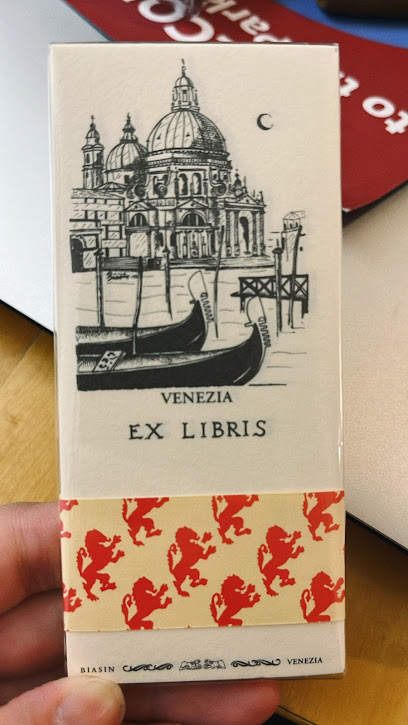
La Mascaretta
Discover unique Venetian gifts and handcrafted treasures at La Mascaretta, the must-visit gift shop in Venice for unforgettable souvenirs.
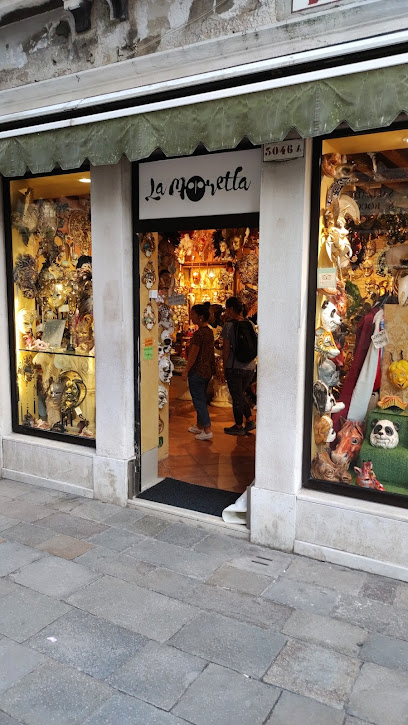
Essential bars & hidden hideouts
Bar All'Arco
Experience the essence of Venice at Bar All'Arco, where authentic cicchetti and local wines create unforgettable moments.
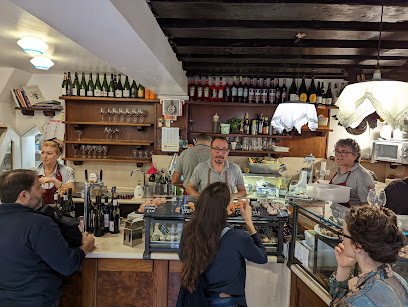
Il Mercante
Experience the heart of Venice's nightlife at Il Mercante, a cocktail bar renowned for its artisanal drinks and cozy atmosphere.
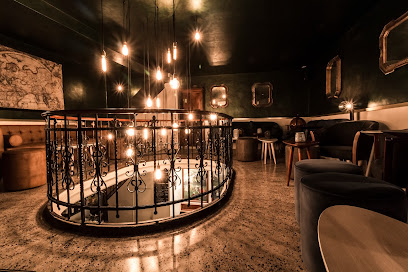
Cantina Do Mori
Discover the charm of Cantina Do Mori, Venice's historic wine bar offering exquisite wines and delicious cicchetti in an enchanting atmosphere.
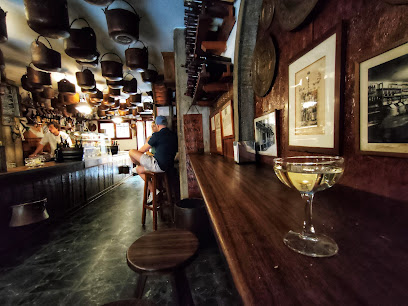
Bussola cocktail lab
Discover the artistry of mixology at Bussola Cocktail Lab, where Venetian flavors meet innovative cocktails in a vibrant bar setting.
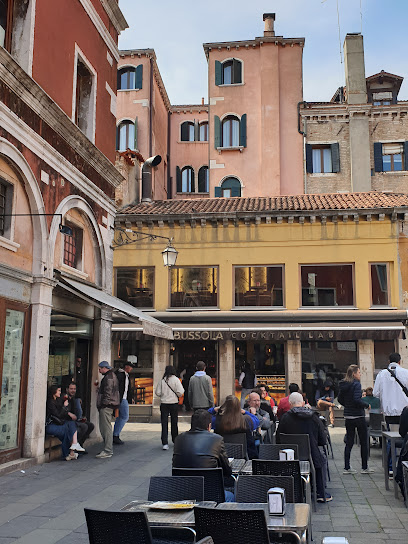
Il Vizietto
Experience the enchanting atmosphere of Il Vizietto, a delightful Venetian bar offering authentic drinks in a cozy setting.
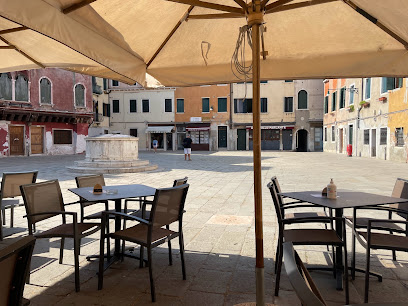
Barcollo Bar
Experience the vibrant spirit of Venice at Barcollo Bar, where tradition meets a lively atmosphere for unforgettable moments.
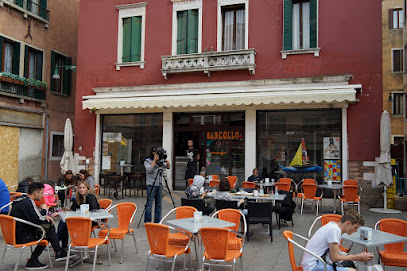
L'archivio
Discover L'archivio, a charming bar and café in Venice offering exquisite drinks, delightful pastries, and a warm atmosphere perfect for relaxation.
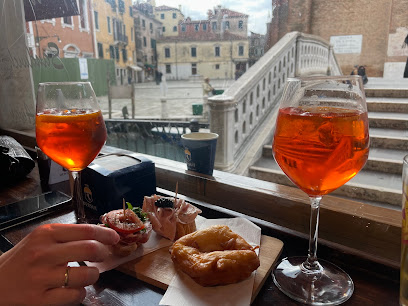
Bar Gondola
Experience the heart of Venice at Bar Gondola, a lively spot for exquisite drinks and local culture.
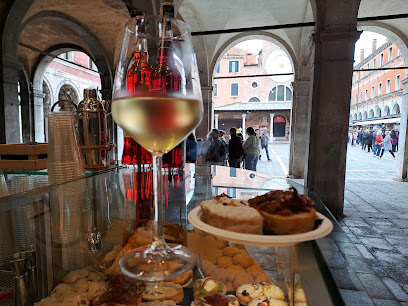
Santa Cocktail Club - Venezia
Experience the enchanting nightlife of Venice at Santa Cocktail Club, where exquisite cocktails and stunning views await.
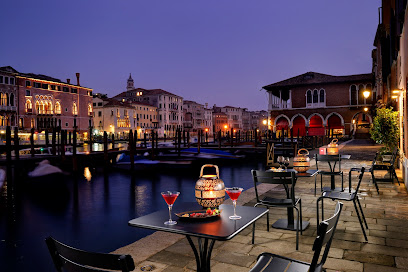
Bar Ai Nobili
Discover the enchanting Bar Ai Nobili in Venice, a cozy bar offering authentic drinks and a vibrant atmosphere perfect for tourists.
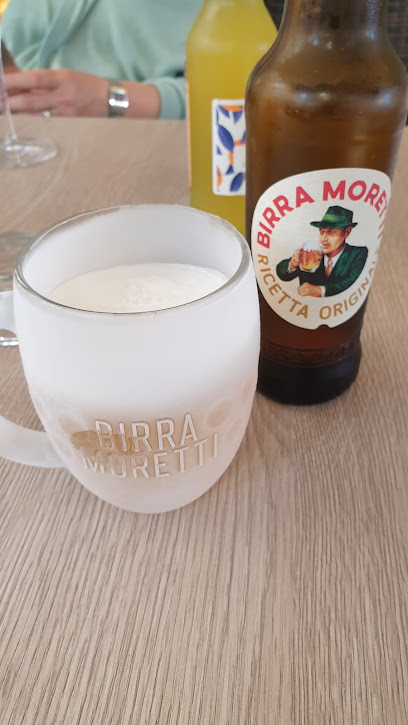
Local Phrases
-
- HelloCiao
[Chow] - GoodbyeArrivederci
[Ah-ree-veh-dehr-chee] - YesSi
[See] - NoNo
[No] - Please/You're welcomePer favore/Prego
[Pehr fah-voh-reh/Preh-goh] - Thank youGrazie
[Grah-tsyeh] - Excuse me/SorryScusa/Mi dispiace
[Skoo-zah/Mee dee-spyah-cheh] - How are you?Come stai?
[Koh-meh stai] - Fine. And you?Bene. E tu?
[Beh-neh. Eh too] - Do you speak English?Parli inglese?
[Pahr-lee een-gleh-zeh] - I don't understandNon capisco
[Nohn kah-pee-skoh]
- HelloCiao
-
- I'd like to see the menu, pleaseVorrei vedere il menù, per favore
[Vohr-reh-ee veh-deh-reh eel meh-noo, pehr fah-voh-reh] - I don't eat meatNon mangio carne
[Nohn mahn-joh kahr-neh] - Cheers!Salute!
[Sah-loo-teh] - I would like to pay, pleaseVorrei pagare, per favore
[Vohr-reh-ee pah-gah-reh, pehr fah-voh-reh]
- I'd like to see the menu, pleaseVorrei vedere il menù, per favore
-
- Help!Aiuto!
[Ah-yoo-toh] - Go away!Vai via!
[Vah-ee vyah] - Call the Police!Chiama la polizia!
[Kya-mah lah poh-lee-tsya] - Call a doctor!Chiama un dottore!
[Kya-mah oon doh-toh-reh] - I'm lostMi sono perso
[Mee soh-noh pehr-soh] - I'm illMi sento male
[Mee sehn-toh mah-leh]
- Help!Aiuto!
-
- I'd like to buy...Vorrei comprare...
[Vohr-reh-ee kohm-prah-reh] - I'm just lookingSto solo guardando
[Stoh soh-loh gwar-dahn-doh] - How much is it?Quanto costa?
[Kwan-toh koh-stah] - That's too expensiveÈ troppo caro
[Eh troh-poh kah-roh] - Can you lower the price?Puoi abbassare il prezzo?
[Pwoy ahb-bah-sah-reh eel preh-tsoh]
- I'd like to buy...Vorrei comprare...
-
- What time is it?Che ora è?
[Keh oh-rah eh] - It's one o'clockÈ l'una
[Eh loo-nah] - Half past (10)Sono le dieci e mezza
[Soh-noh leh dyeh-chee eh meh-tzah] - MorningMattina
[Maht-tee-nah] - AfternoonPomeriggio
[Poh-meh-ree-joh] - EveningSera
[Seh-rah] - YesterdayIeri
[Yeh-ree] - TodayOggi
[Oh-jee] - TomorrowDomani
[Doh-mah-nee] - 1Uno
[Oo-noh] - 2Due
[Dweh] - 3Tre
[Treh] - 4Quattro
[Kwaht-troh] - 5Cinque
[Cheen-kweh] - 6Sei
[Say] - 7Sette
[Seht-teh] - 8Otto
[Oht-toh] - 9Nove
[Noh-veh] - 10Dieci
[Dyeh-chee]
- What time is it?Che ora è?
-
- Where's a/the...?Dov'è un/il...?
[Doh-veh oon/eel] - What's the address?Qual è l'indirizzo?
[Kwahl eh leen-dee-reet-soh] - Can you show me (on the map)?Puoi mostrarmi (sulla mappa)?
[Pwoy mohs-trar-mee (sool-lah mahp-pah)] - When's the next (bus)?Quando passa il prossimo (autobus)?
[Kwan-doh pahs-sah eel prohs-shee-moh (ow-toh-boos)] - A ticket (to ....)Un biglietto (per ....)
[Oon bee-lyeh-toh (pehr)]
- Where's a/the...?Dov'è un/il...?
History of San Polo
-
San Polo is one of the oldest neighborhoods in Venice, named after the church of San Polo, which dates back to the 9th century. This area was part of the original settlements on the islands of Venice, and its name reflects the historical significance of its ecclesiastical foundations. The church itself has undergone numerous renovations and restorations, showcasing different architectural styles over the centuries.
-
San Polo is home to the famous Rialto Market, which has been a hub of commerce since the late Middle Ages. Established in the 11th century, the market was crucial for the trade of spices, textiles, and other goods, reflecting Venice's position as a major trading power in the Mediterranean. The vibrant atmosphere of the market continues today, where locals and tourists alike experience the rich culinary traditions of the region.
-
During the Renaissance, San Polo became a center of artistic and cultural development. Notable artists, such as Giovanni Bellini and the sculptor Antonio Rizzo, worked in the area, contributing to the rich artistic heritage of Venice. The neighborhood's palaces and buildings, including the Palazzo Corner and the Scuola Grande di San Rocco, are adorned with magnificent artworks that reflect the artistic ethos of the time.
-
San Polo played a vital role in the political landscape of Venice. The presence of various guilds and institutions in the area influenced trade regulations and civic governance. The neighborhood was often the site of public assemblies and events, contributing to the vibrant democratic practices that characterized the Venetian Republic.
-
The late 18th and early 19th centuries brought significant changes to San Polo due to the Napoleonic occupation. The French reforms led to the suppression of many religious institutions and the redistribution of church properties. This period marked a decline in the prominence of some local traditions and customs, while also paving the way for new developments in urban planning and architecture.
-
Today, San Polo is a blend of historical charm and modern tourism. The neighborhood attracts visitors with its narrow streets, picturesque canals, and rich history. Efforts to preserve the cultural heritage of San Polo are evident in its ongoing festivals, local artisan shops, and culinary experiences that highlight traditional Venetian cuisine.
San Polo Essentials
-
San Polo is centrally located in Venice, making it easily accessible from other neighborhoods. To reach San Polo from Santa Lucia Train Station, you can take a Vaporetto (water bus) on Line 1 or Line 2, getting off at the San Toma stop. Alternatively, you can enjoy a pleasant walk through the picturesque streets, which will take approximately 20 minutes. From the Rialto Bridge, it's just a short stroll of about 10 minutes to reach the heart of San Polo.
-
San Polo is a compact neighborhood that is best explored on foot. The narrow, winding streets are pedestrian-friendly and filled with charming shops and cafes. Public transport is limited to Vaporetto services, which connect San Polo to other parts of Venice. Bicycles are not allowed in the city, and cars cannot access the historic center. For longer distances, you can catch a Vaporetto from nearby stops such as San Toma or Rialto.
-
San Polo is generally safe for tourists, but like any popular tourist area, it’s wise to stay vigilant. Petty crime such as pickpocketing can occur, especially in crowded areas like the Rialto Market. Avoid walking alone at night in poorly lit areas and keep your belongings secure. While there are no specific high-crime areas, maintaining awareness of your surroundings will enhance your safety.
-
In the event of an emergency, dial 112 for police, fire, or medical assistance. The nearest emergency room is located at the Hospital of Venice (Ospedale Civile). It is advisable to have travel insurance that covers medical emergencies. For non-urgent health issues, you can visit local pharmacies, which are easily found throughout the neighborhood.
-
Fashion: Do wear comfortable shoes suitable for walking, as the streets are often uneven. Avoid wearing overly casual clothing when visiting churches. Religion: Do respect local customs by dressing modestly in religious sites, covering shoulders and knees. Public Transport: Do have your Vaporetto ticket ready and validate it before boarding. Don't eat or drink on public transport. Greetings: Do greet locals with a friendly 'Buongiorno' (Good morning) or 'Buonasera' (Good evening). Eating & Drinking: Do try local specialties like Cicchetti (Venetian tapas) and enjoy your meal in a relaxed manner. Don't rush your dining experience; Italians value leisurely meals.
-
To experience San Polo like a local, visit the Rialto Market in the morning for fresh produce and local delicacies. Try to dine at small, family-owned osterias for authentic Venetian cuisine. Engage with locals, many of whom are happy to share tales of their neighborhood. Attend a local festival if your visit coincides with one; these events celebrate Venetian culture and traditions. Also, take a moment to enjoy the quieter canals, away from the main tourist paths, to truly soak in the charm of San Polo.
Nearby Cities to San Polo
-
Things To Do in Piran
-
Things To Do in Portorož
-
Things To Do in Izola
-
Things To Do in Verona
-
Things To Do in Rovinj
-
Things To Do in Koper
-
Things To Do in Ravenna
-
Things To Do in Trieste
-
Things To Do in Nova Gorica
-
Things To Do in Sežana
-
Things To Do in Bologna
-
Things To Do in Pula
-
Things To Do in Modena
-
Things To Do in Postojna
-
Things To Do in Opatija













